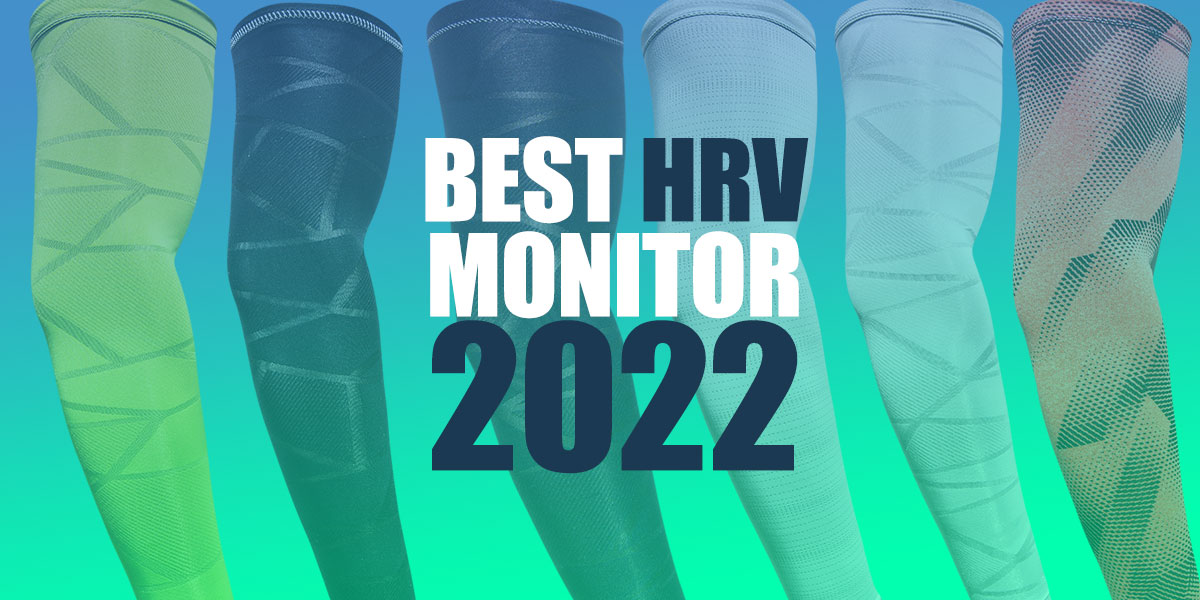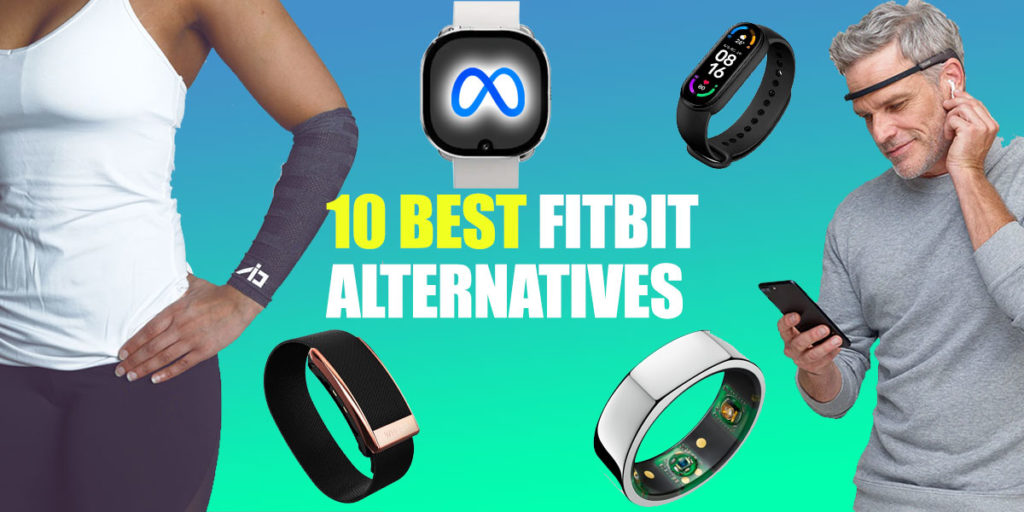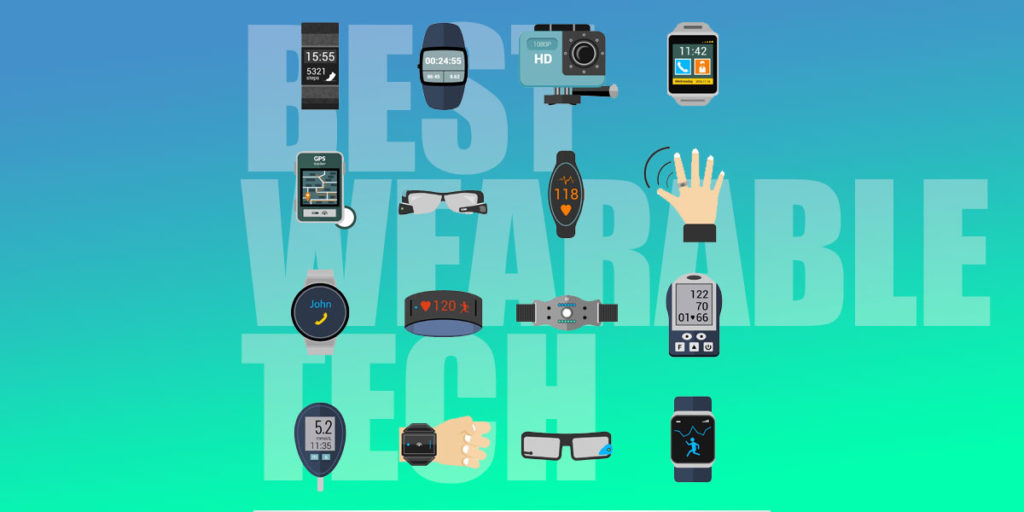If you are looking for ways to increase your HRV score, look no further than your current diet and food intake. Heart rate variability has become such a crucial tool in the every day lives of millions. It gives you the ability to monitor stress levels, workout recovery, resiliency, and so much more. The question your are probably asking is how to increase HRV or how do I choose the proper diet?
You first might be tempted to do a google search of popular diets. You’ll see the paleo diet, keto diet, vegan, Atkins, weight watchers, the carnivore diet, and so on. But how do you know which diet is right for you? They try to convince you with latest, cutting-edge research backed by Yale and Harvard researchers, that THIS is the best diet. Or they put up a picture of Oprah holding a plate of greens to convince you her diet is the one for you. So as she cashes in on a multi-billion dollar market, don’t be fooled!
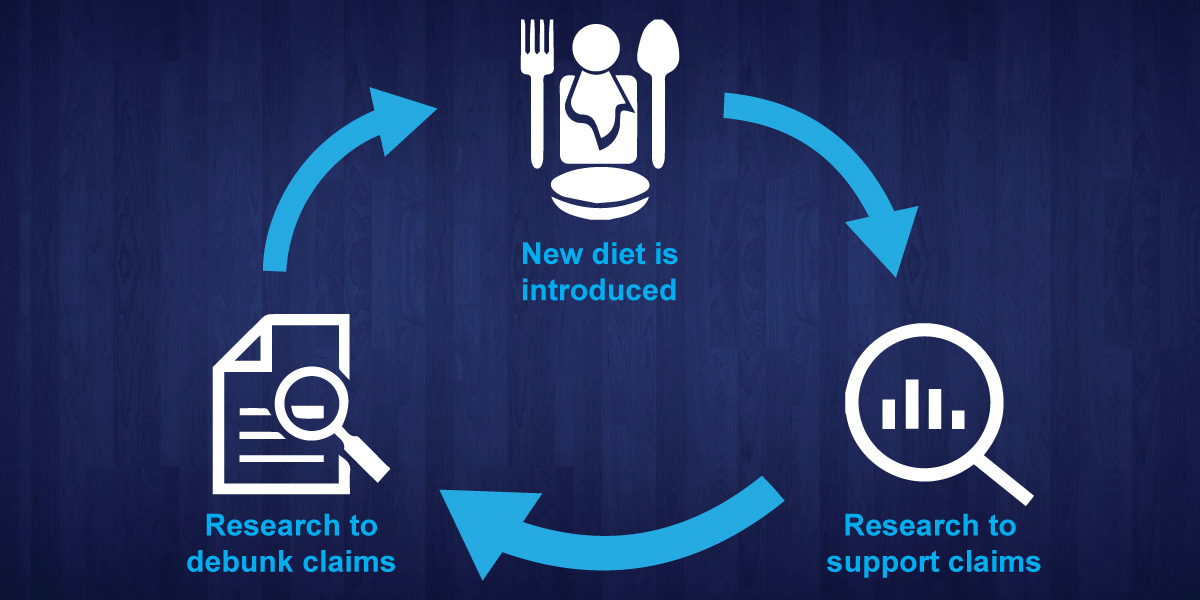
But it seems every new diet enters an inevitable cycle. A new ‘fad’ diet is introduced, then research is conducted to validate it’s efficacy, and finally some 6 months later there is research done disproving the effectiveness of this diet. This happens not only with diets but also with individual foods, vitamins and minerals.
Remember the whole coconut oil saga? Studies came out showing how great and healthy coconut oil is and that you should be substituting all of your oils with it. But several months later, Harvard released a paper talking about how bad coconut oil is for you. That it’s about 90% unsaturated fat, which is higher content than that found in butter, beef fat and even lard.
So what diet is right for me? Who do I trust? Truth is, you should only trust yourself and your own body. These diets are based on general data that assumes a particular diet would be good for the general population. But these doctors and researchers don’t know YOUR medical history and what if you don’t fall in to the “general” population pool? They really have no idea. Each individual has a unique reaction to particular foods. Knowing how your body and brain reacts to these foods is the key to optimizing your diet. “this is impossible,” you might be thinking. But it’s not. You can do this with heart rate variability (HRV)
Heart Rate Variability
Essentially, HRV gives us a snapshot of your overall heart health at any given time throughout the day. And this can change based on stress on that particular day, as well as other factors; a main one being food. It’s an amazing tool, and perhaps the only one that can truly optimize your diet and help find a nutrition plan that’s perfect for you. Though sites like 23andMe claim they can help tailor diets specific to the individual by studying ones genetic dispositions. However, these studies are still in their infancy and don’t have enough clinical evidence whereas HRV does.
How to Increase Your HRV Score with the Right Diet?
It’s quite simple, you want high heart rate variability since it indicates a healthy functioning body. Typically HRV is measured for 2 – 5 minutes and then give you a score at the end. Different wearables and apps will display results in their own way. Whoop, for example gives you a score based on percentage. Apps like EliteHRV show essentially the same thing (a score out of 100). Then there’s the AIO Smart Sleeve, which shows you a score out of 5 stars.
So the way food affects our bodies is in the way our bodies and brains react. Every time you eat, your brain sends a signal to the rest of your body to digest the food you ate. And every one is different in the way they react to food, specifically how much stress they are putting their body under with certain foods.
Unhealthy foods, or maybe foods that don’t agree with you, will elicit a stress response; a response that can only be captured by using heart rate variability. But we can’t generalize certain foods as being universally unhealthy or universally healthy because everyone has different reactions. So if you eat unhealthy food, as deemed by your body, your HRV will decrease and vice versa.
Using a wearable product like the AIO Smart Sleeve can provide you with data to support life-changing decisions, for the better. It allows you to track your HRV throughout the day, measure it before and after food so you can make the right decision to cut certain foods from your diet. Whereas cars have check engine lights, we don’t. However, HRV is the closest thing to that and our bodies are much more valuable than a hunk of metal on wheels.
Carbs And HRV
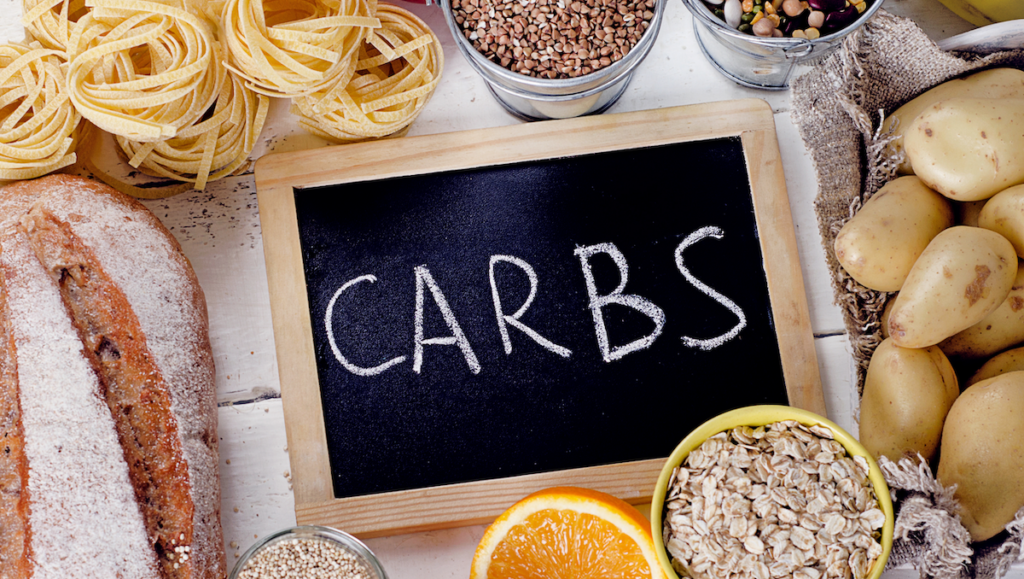
Carbs are terrible, right? We’ve heard for years now, “eat less white rice, switch to whole wheat bread, no more pasta!” Well then why does Japan have the second highest life expectancy (of 84.74 years) despite the fact that the Japanese diet is very high in carbs? Why do other countries who have predominantly high carb diets, like Italy, constantly surpass countries like Canada and the United States (where these fad diets are prominent) in this statistical category?
To be fair, life expectancy is not the end all, be all statistic, but it does carry some significance. Typically these two countries have a quite healthy population despite scientific research that claims carbs are cancerous, and can lead to diabetes. So why are carbs ok there and not other places?
Get The Full Picture
Much of this research and clinical data does not look at other factors such as lifestyle. Does a person smoke, drink, exercise, carry other stress from work, not get enough sleep, and so on. There are so many factors that it’s impossible to say that a cookie-cutter diet will work for a person. It’s just not realistic.
Take Control of Your Health
Heart rate variability gives you all the power. Be your own boss! Try a diet or try certain foods and see how your body reacts. You can plug in different diets or types of food into your routine and see if they work for you. What you do is measure your HRV before you eat and then 30 – 60 minutes after you eat and see by how much your HRV decreased. For example, if you eat a salad with minimal dressing, your HRV might only slightly decrease as compared to if you ate a Big Mac Meal from McDonalds. Or maybe not! Only one way to find out and that’s by testing it yourself.
Not only that, but you should monitor HRV continuously after your meals if you want to optimize your diet. You want to see how quickly your HRV goes back to its baseline. Baseline HRV simply refers to your average heart rate variability, daily and weekly. This is the number that you are looking to improve in the long-term
Big Mac HRV case study
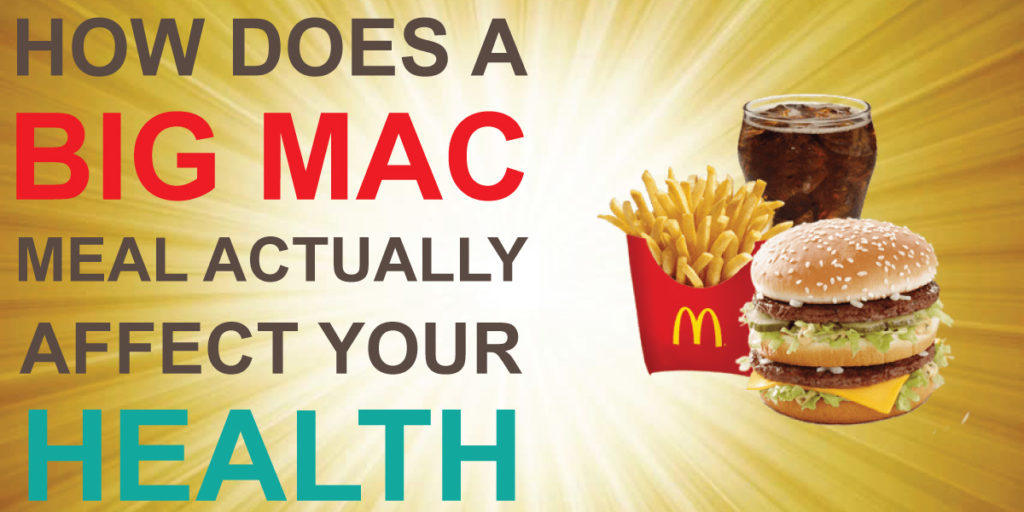
There was a small case study done with the effect that one Big Mac meal has on HRV; Nothing extremely significant, but still an anecdotal study. The device used was the AIO Smart Sleeve + the AIO Sleeve App. There were 10 subjects between the ages of 25 to 60. Two groups were used, between 25 – 40 and 41 – 60. Here were the results:
| Age Group | Heart Rate Variability Before Eating (avg.) | HRV After Meal (avg.) |
| 25 – 40 | 3.8 | 3.1 |
| 41 – 60 | 3.2 | 2.2 |
The results show that the 25 – 40 age group saw an HRV reduction of 0.7 (out of 5 stars) and the 41 – 60 age group saw a full 1-point reduction. It’s necessary to point out that many studies show that HRV generally decreases with age, and many other variables were not considered in this case study (further research will be published soon).
Takeaway
So not only does this show that this generally unhealthy meal reduces HRV, the reduction level is different among age groups, and each individual had a unique response (not a single one had equal results).
Intermittent Fasting And HRV
Much has been made about intermittent fasting and caloric restriction in the past several years as well. Much thanks to media programs like the Joe Rogan Experience. The idea is restricting your eating window to just 8 hours of the day. Again, studies show significant health improvements but is this technique right for you?
Some people might adjust to this type of food schedule, while other might not. The only way to know is by using HRV. Heart rate variability will know when something is off, internally. There’s a way you can test this on yourself by using a method that is widely known in the HRV community and it’s called morning readiness.
Jumpstart Your Day
Morning readiness is measuring your heart rate variability in the morning, which gives you a sense of overall health and resilience to start the day. High HRV means your starting your day off on the right foot! So Let’s say you’re currently on a normal diet and your last meal is at 8pm. Measure HRV before your meal, once after and then once in the morning before breakfast. Take note, and then do the same when you try fasting.
The general intermittent fasting window is 16 hours. So let’s say you’re last meal is at 6pm and first meal the next day is at 10am. Measure before you eat, after, and in the morning. See how it varies. If you recover quicker and your HRV is higher with fasting, then maybe it’s something you’ll want to keep up!
Alcohol And HRV

It goes without saying that alcohol doesn’t exactly coincide with healthy lifestyles but we’ve all seen studies and articles saying 1 glass of wine a day is actually good for heart health. Even the Mayo Clinic approves. But in recent years this theory has been completely debunked. Even though alcohol isn’t great for you, we all have the urge to have a beverage in evening with dinner after a long day of work.
You can use HRV to see what amount of alcohol is okay for your body, as well as which types of alcohol have worse effects. Try this: See how your HRV responds after drinking each type of alcohol. Try wine one night, whiskey the next and so on. Disclaimer: We don’t encourage binge drinking, but you got to do what you got to do! We will be conducting this experiment in depth and posting the results soon. We’ll be doing this strictly for scientific purposes…(wink, wink)
Inflammation
Inflammation that you would get from certain foods is also heavily connected to heart rate variability. If some food causes you inflammation, it will show with a reduced HRV. It’s due to something called a C-reactive protein (CRP). This is something that is produced by the liver in response to inflammation. And HRV is associated with the production of these proteins, and that why it can tell you if some foods cause inflammation.
Foods That Increase HRV
This is a question we see often and there’s two answers. Short term vs. long term effects. In the short term, meaning after ingestion, there are NO FOODS or beverages that will increase your HRV. Digestion is a function of your autonomic nervous system and is technically a ‘stressor’ on your body. If your body is digesting anything, means your body’s at work. Lower HRV is not always a bad thing.
In the long-term is where diet can have a positive impact on your HRV. Highly processed foods, fried foods, etc., all have a significant, negative effect on your HRV. It doesn’t matter how healthy you are. It takes significant resources from your body to digest these foods. So if you eat poorly for a long period of time, you heart rate variability baseline will decrease.
The opposite happens when you eat healthy. With time, a healthy diet can increase your baseline HRV since your body is not exerting the same energy to digest a healthy diet. Think of it as build up sludge and oil in your car. It will cause your car to run poorly with added breakdowns in your engine and transmission. But there really is no guideline as to which foods increase HRV, that’s on you to discover. Change your diet and monitor HRV on a daily basis to see your morning readiness, evening HRV and post meal HRV.

Another noteworthy item: When choosing a diet plan, people get hooked by pictures of models who are toned, tanned, and all that. But having a 6-pack doesn’t always correlate with a healthy body and heart. Just look at the Mr. Olympia contestants (bodybuilders). They have muscles on top of more muscles with a 4% body fat. But this doesn’t mean that internally, they are healthy. All of the “supplements” they take are doing significant damage and their heart is working like crazy, and it’s why there are many cases of heart problems as they age.
Can Supplements Increase HRV?
Many people look to supplements to try and improve their health. But if you’re going to get supplements to increase HRV, there is some nuance.
If you’re simply looking for a pill, a vitamin or a mineral that will magically improve your HRV, you won’t find it. HRV is complex, and your body cannot be fooled. There’s only one thing that comes to mind that can potentially improve heart rate variability.
Food And HRV comes down to digestion. It’s possible that you have digestion issues with most food items. There are special probiotics and supplements that help with the breakdown of food and speed up the digestion process. If this allows your body to struggle for less time with digestion, it can potentially improve HRV in the long-term.
Optimize Your Life
This doesn’t mean you can’t get the desired look from these diets, of course you can. But with HRV you can optimize you diet and have your body running like Ferrari and not a 1980’s broken down Chevy. I know what diet is right for me, and you can know too.
In our future blogs, we will be posting results of our case studies with regards to how fast food affects HRV and also how different types of alcohol affect HRV. So stay tuned!!
Heart rate variability (HRV) is slowly becoming the most significant health biomarker on the planet. From analyzing your stress levels, to inflammation, workout recovery and yes, how certain foods affect you internally. Diet and HRV studies have been conducted for decades, and now there are many clinical studies that validate that foods can (and do) affect everyone differently. The same “healthy” food, may not be how your body interprets it. HRV can surely answer the question of: what diet is right for me?
You first might be tempted to do a google search of popular diets. You’ll see the paleo diet, keto diet, vegan, Atkins, weight watchers, the carnivore diet, and so on. But how do you know which diet is right for you? They try to convince you with latest, cutting-edge research backed by Yale and Harvard researchers, that THIS is the best diet. Or they put up a picture of Oprah holding a plate of greens to convince you her diet is the one for you. So as she cashes in on a multi-billion dollar market, don’t be fooled!

But it seems every new diet enters an inevitable cycle. A new ‘fad’ diet is introduced, then research is conducted to validate it’s efficacy, and finally some 6 months later there is research done disproving the effectiveness of this diet. This happens not only with diets but also with individual foods, vitamins and minerals.
Remember the whole coconut oil saga? Studies came out showing how great and healthy coconut oil is and that you should be substituting all of your oils with it. But several months later, Harvard released a paper talking about how bad coconut oil is for you. That it’s about 90% unsaturated fat, which is higher content than that found in butter, beef fat and even lard.
So what diet is right for me? Who do I trust? Truth is, you should only trust yourself and your own body. These diets are based on general data that assumes a particular diet would be good for the general population. But these doctors and researchers don’t know YOUR medical history and what if you don’t fall in to the “general” population pool? They really have no idea. Each individual has a unique reaction to particular foods. Knowing how your body and brain reacts to these foods is the key to optimizing your diet. “this is impossible,” you might be thinking. But it’s not. You can do this with heart rate variability (HRV)
Innovative Health Technology
Heart Rate Variability (HRV) is a true indicator of overall health. HRV reflects the capacity of the body to deal with on-going demands (Young and Benton, 2015). HRV measures the time difference between each successive heartbeat; the higher the difference (variability) generally the healthier the individual.
Heart Rate Variability
Essentially, HRV gives us a snapshot of your overall heart health at any given time throughout the day. And this can change based on stress on that particular day, as well as other factors; a main one being food. It’s an amazing tool, and perhaps the only one that can truly optimize your diet and help find a nutrition plan that’s perfect for you. Though sites like 23andMe claim they can help tailor diets specific to the individual by studying ones genetic dispositions. However, these studies are still in their infancy and don’t have enough clinical evidence whereas HRV does.
How to Improve Your HRV with Diet?
It’s quite simple, you want high heart rate variability since it indicates a healthy functioning body. Typically HRV is measured for 2 – 5 minutes and then give you a score at the end. Different wearables and apps will display results in their own way. Whoop, for example gives you a score based on percentage. Apps like EliteHRV show essentially the same thing (a score out of 100). Then there’s the AIO Smart Sleeve, which shows you a score out of 5 stars.
So the way food affects our bodies is in the way our bodies and brains react. Every time you eat, your brain sends a signal to the rest of your body to digest the food you ate. And every one is different in the way they react to food, specifically how much stress they are putting their body under with certain foods.
Unhealthy foods, or maybe foods that don’t agree with you, will elicit a stress response; a response that can only be captured by using heart rate variability. But we can’t generalize certain foods as being universally unhealthy or universally healthy because everyone has different reactions. So if you eat unhealthy food, as deemed by your body, your HRV will decrease and vice versa.
Using a wearable product like the AIO Smart Sleeve can provide you with data to support life-changing decisions, for the better. It allows you to track your HRV throughout the day, measure it before and after food so you can make the right decision to cut certain foods from your diet. Whereas cars have check engine lights, we don’t. However, HRV is the closest thing to that and our bodies are much more valuable than a hunk of metal on wheels.
Carbs And HRV

Carbs are terrible, right? We’ve heard for years now, “eat less white rice, switch to whole wheat bread, no more pasta!” Well then why does Japan have the second highest life expectancy (of 84.74 years) despite the fact that the Japanese diet is very high in carbs? Why do other countries who have predominantly high carb diets, like Italy, constantly surpass countries like Canada and the United States (where these fad diets are prominent) in this statistical category?
To be fair, life expectancy is not the end all, be all statistic, but it does carry some significance. Typically these two countries have a quite healthy population despite scientific research that claims carbs are cancerous, and can lead to diabetes. So why are carbs ok there and not other places?
Get The Full Picture
Much of this research and clinical data does not look at other factors such as lifestyle. Does a person smoke, drink, exercise, carry other stress from work, not get enough sleep, and so on. There are so many factors that it’s impossible to say that a cookie-cutter diet will work for a person. It’s just not realistic.
Take Control of Your Health
Heart rate variability gives you all the power. Be your own boss! Try a diet or try certain foods and see how your body reacts. You can plug in different diets or types of food into your routine and see if they work for you. What you do is measure your HRV before you eat and then 30 – 60 minutes after you eat and see by how much your HRV decreased. For example, if you eat a salad with minimal dressing, your HRV might only slightly decrease as compared to if you ate a Big Mac Meal from McDonalds. Or maybe not! Only one way to find out and that’s by testing it yourself.
Not only that, but you should monitor HRV continuously after your meals if you want to optimize your diet. You want to see how quickly your HRV goes back to its baseline. Baseline HRV simply refers to your average heart rate variability, daily and weekly. This is the number that you are looking to improve in the long-term
Big Mac HRV case study

There was a small case study done with the effect that one Big Mac meal has on HRV; Nothing extremely significant, but still an anecdotal study. The device used was the AIO Smart Sleeve + the AIO Sleeve App. There were 10 subjects between the ages of 25 to 60. Two groups were used, between 25 – 40 and 41 – 60. Here were the results:
| Age Group | Heart Rate Variability Before Eating (avg.) | HRV After Meal (avg.) |
| 25 – 40 | 3.8 | 3.1 |
| 41 – 60 | 3.2 | 2.2 |
The results show that the 25 – 40 age group saw an HRV reduction of 0.7 (out of 5 stars) and the 41 – 60 age group saw a full 1-point reduction. It’s necessary to point out that many studies show that HRV generally decreases with age, and many other variables were not considered in this case study (further research will be published soon).
Takeaway
So not only does this show that this generally unhealthy meal reduces HRV, the reduction level is different among age groups, and each individual had a unique response (not a single one had equal results).
Intermittent Fasting And HRV
Much has been made about intermittent fasting and caloric restriction in the past several years as well. Much thanks to media programs like the Joe Rogan Experience. The idea is restricting your eating window to just 8 hours of the day. Again, studies show significant health improvements but is this technique right for you?
Some people might adjust to this type of food schedule, while other might not. The only way to know is by using HRV. Heart rate variability will know when something is off, internally. There’s a way you can test this on yourself by using a method that is widely known in the HRV community and it’s called morning readiness.
Jumpstart Your Day
Morning readiness is measuring your heart rate variability in the morning, which gives you a sense of overall health and resilience to start the day. High HRV means your starting your day off on the right foot! So Let’s say you’re currently on a normal diet and your last meal is at 8pm. Measure HRV before your meal, once after and then once in the morning before breakfast. Take note, and then do the same when you try fasting.
The general intermittent fasting window is 16 hours. So let’s say you’re last meal is at 6pm and first meal the next day is at 10am. Measure before you eat, after, and in the morning. See how it varies. If you recover quicker and your HRV is higher with fasting, then maybe it’s something you’ll want to keep up!
Alcohol And HRV

It goes without saying that alcohol doesn’t exactly coincide with healthy lifestyles but we’ve all seen studies and articles saying 1 glass of wine a day is actually good for heart health. Even the Mayo Clinic approves. But in recent years this theory has been completely debunked. Even though alcohol isn’t great for you, we all have the urge to have a beverage in evening with dinner after a long day of work.
You can use HRV to see what amount of alcohol is okay for your body, as well as which types of alcohol have worse effects. Try this: See how your HRV responds after drinking each type of alcohol. Try wine one night, whiskey the next and so on. Disclaimer: We don’t encourage binge drinking, but you got to do what you got to do! We will be conducting this experiment in depth and posting the results soon. We’ll be doing this strictly for scientific purposes…(wink, wink)
Inflammation
Inflammation that you would get from certain foods is also heavily connected to heart rate variability. If some food causes you inflammation, it will show with a reduced HRV. It’s due to something called a C-reactive protein (CRP). This is something that is produced by the liver in response to inflammation. And HRV is associated with the production of these proteins, and that why it can tell you if some foods cause inflammation.
Foods That Increase HRV | Improve HRV With Diet
This is a question we see often and there’s two answers. Short term vs. long term effects. In the short term, meaning after ingestion, there are NO FOODS or beverages that will increase your HRV. Digestion is a function of your autonomic nervous system and is technically a ‘stressor’ on your body. If your body is digesting anything, means your body’s at work. Lower HRV is not always a bad thing.
In the long-term is where diet can have a positive impact on your HRV. Highly processed foods, fried foods, etc., all have a significant, negative effect on your HRV. It doesn’t matter how healthy you are. It takes significant resources from your body to digest these foods. So if you eat poorly for a long period of time, you heart rate variability baseline will decrease.
The opposite happens when you eat healthy. With time, a healthy diet can increase your baseline HRV since your body is not exerting the same energy to digest a healthy diet. Think of it as build up sludge and oil in your car. It will cause your car to run poorly with added breakdowns in your engine and transmission. But there really is no guideline as to which foods increase HRV, that’s on you to discover. Change your diet and monitor HRV on a daily basis to see your morning readiness, evening HRV and post meal HRV.

Another noteworthy item: When choosing a diet plan, people get hooked by pictures of models who are toned, tanned, and all that. But having a 6-pack doesn’t always correlate with a healthy body and heart. Just look at the Mr. Olympia contestants (bodybuilders). They have muscles on top of more muscles with a 4% body fat. But this doesn’t mean that internally, they are healthy. All of the “supplements” they take are doing significant damage and their heart is working like crazy, and it’s why there are many cases of heart problems as they age.
Can Supplements Increase HRV ?
Many people look to supplements to try and improve their health. But if you’re going to get supplements to increase HRV, there is some nuance.
If you’re simply looking for a pill, a vitamin or a mineral that will magically improve your HRV, you won’t find it. HRV is complex, and your body cannot be fooled. There’s only one thing that comes to mind that can potentially improve heart rate variability.
Food And HRV comes down to digestion. It’s possible that you have digestion issues with most food items. There are special probiotics and supplements that help with the breakdown of food and speed up the digestion process. If this allows your body to struggle for less time with digestion, it can potentially improve HRV in the long-term.
Optimize Your Life
This doesn’t mean you can’t get the desired look from these diets, of course you can. But with HRV you can optimize you diet and have your body running like Ferrari and not a 1980’s broken down Chevy. I know what diet is right for me, and you can know too.
In our future blogs, we will be posting results of our case studies with regards to how fast food affects HRV and also how different types of alcohol affect HRV. So stay tuned!!






